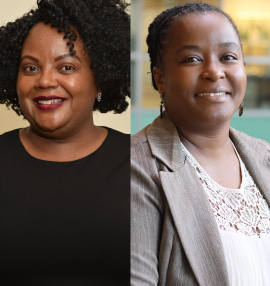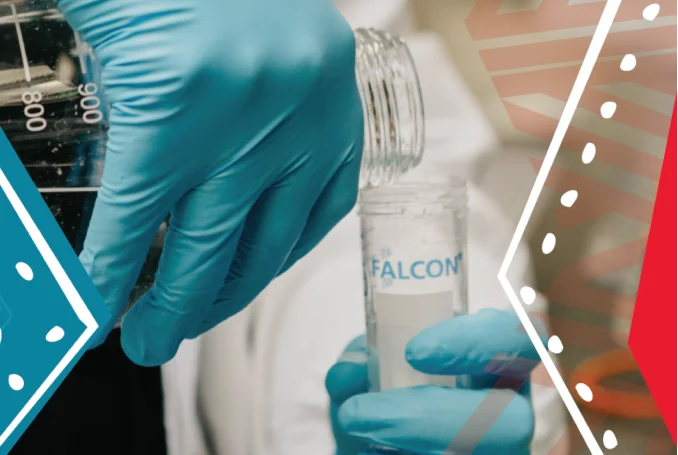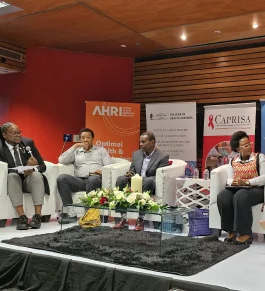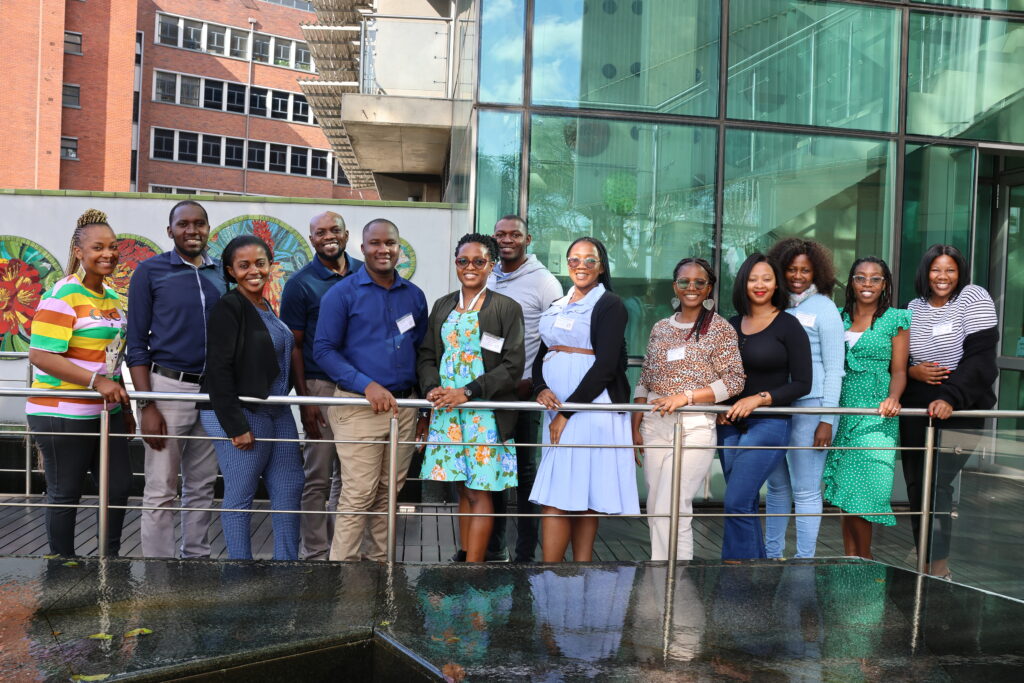News
SANTHE Scientists Scoop CFAR Awards
The Center for AIDS Research (CFAR) Johns Hopkins University Africure Programme, in the USA, awards five one-year grants of $150,000 USD to highly talented early- and mid-career stage investigators from Sub-Saharan Africa to address critical questions related to HIV cure research. Recipients of the awards are mentored by, and collaborate with, established HIV investigators across CFARs and affiliated institutions in Africa, with the goal of having a transformational impact on the careers of African investigators, their institutions, and the entire HIV cure enterprise.
This year two SANTHE affiliates received these prestigious awards, namely, Catherine (Khei) Koofhethile, SANTHE Researcher and Path-to-Independence Awardee, based at the Botswana Harvard Health Partnership (BHP) in Gaborone, Botswana, and Rujeko Chidawanyika, SANTHE Researcher/Supervisor, based at the Africa Health Research Institute (AHRI) in Durban, South Africa.

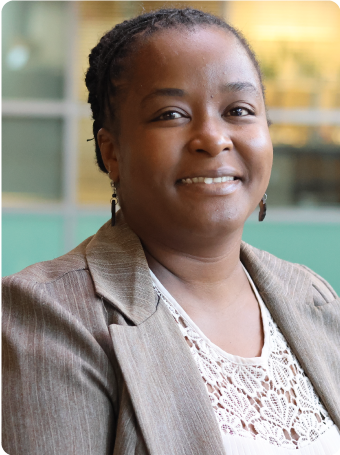
Receiving news of her $150K USD award on a Sunday evening, February 18, Koofhethile said she felt it was “God’s timing”. As Botswana continues to bear the brunt of the HIV/AIDS epidemic, despite widespread availability of antiretroviral therapy (ART), the number of adolescents with HIV-1 is high. This reflects substantial mother-to-baby transmission in the early 2000’s, followed by a successful paediatric ART programme. Many adolescents and young adults in Botswana have received continuous ART for over 15-20 years, and initial evaluations of these early-treated individuals demonstrate low viral reservoirs (where the HIV virus resides in the human body) sizes. It is unclear what role the immune system plays in maintaining this low reservoir size in this population. Hence, the aim of Koofhethile’s study is to understand the role of HIV-1 specific immune responses in adolescents living with HIV who have very low HIV reservoirs.
Because the cell types of the developing immune system in early life differs from the adult immune system, the proportion of adolescents with low reservoirs may differ from adults. Furthermore, the mechanism by which children and adolescents may approach and achieve post-treatment control through immune modulation of the viral reservoir may be unique.
Therefore, studying the role of T cell immune function in adolescents with low viral reservoirs, indicating potential post-treatment control, will advance HIV cure research – especially in low resource settings. Koofhethile hopes to find that people, who are potentially post-treatment controllers, may present with robust immune responses to HIV infection.
She has also received funding from the Government of Botswana through the Ministry of Communication, Knowledge and Technology to expand her current research on characterising the HIV reservoirs in an adolescent cohort, as well as establishing a cohort of elite controllers in Botswana. This funding will allow her to study how the reservoir evolves in both cohorts which will contribute to the search for an HIV cure.
Chidawanyika plans to use her $155.5K USD CFAR award to investigate what people in rural communities with high HIV prevalence rates understand about HIV cure concepts and terms, and what they hope for in terms of finding a cure. She also aims to improve scientific knowledge about HIV cure in the communities by helping HIV cure scientists develop better communication skills for engaging the public.
She hopes this work will address the research gap in understanding HIV cure concepts/terms in Africa. The acceptability of these concepts could have a profound impact on the ability do research or HIV cure interventions in rural areas. She plans to work with communities to create HIV cure messaging that is relatable to local cultures and languages for use in public engagement and communication.
Most HIV cure research is, in fact, based in the global North – with limited research efforts in urban populations in sub-Saharan Africa. It is important to extend this work to rural areas – and poorly resourced settings – where low education levels may result in reduced awareness and understanding of HIV cure research. Gathering information on these communities’ understanding of HIV cure terms, the way “HIV cure” is spoken about in the local isiZulu language, or the current terms used, is critical in overcoming the mistrust and fear associated with future clinical trial participation and in developing an ethical and inclusive HIV cure.
Asked how she felt about receiving the award, Chidawanyika said, “At the moment an advancement in global HIV cure is needed and the integration of social and behavioural studies in that research is integral now more than ever! This award will enable us to drive this research in Africa and I feel privilegeded to be part of that. This collaborative project integrates socio-behavioural and basic sciences with public engagement in working towards a common goal of achieving a breakthrough in HIV cure research. Such collaborations rise above the boundaries of research disciplines and can lead to groundbreaking new insights. So to be part of that is awesome!”
“By ensuring our research reflects the diverse perspectives and experiences of the communities we serve, we can develop more comprehensive and equitable interventions to the heath challenges we face, leading to more impactful outcomes in African science.”

